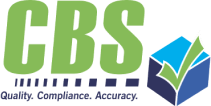Increase Your Medical Coding & Billing Accuracy With These Tips
Accuracy is critical when it comes to medical coding and billing. Any error, even the smallest, can result in a claim being rejected by the payer. Not only does this cause payment delays, cash flow problems and lost revenue, but some miscoding can be legally problematic. Furthermore, coding changes, like the AMA’s 2023 E/M coding update, need to be thoroughly understood and implemented by your coding team to avoid over-coding or under-coding due to outdated codes and implementation.
When your organization chooses Coding & Billing Solutions as its out-sourced coding team, you will find a team of coders who have industry-leading expertise in HIM services, including coding, auditing, billing, revenue management and recovery, denial reviews and prevention, and physician coding/billing. CBS proudly provides services 365 days a year with cost-effective solutions for every organization’s needs.
The following are some medical coding and billing tips that will help you to improve claims management and reimbursements.
1. Make Sure You Are Up To Date On The Latest Coding Changes
Medical billing and coding is a constantly evolving field. Regular training and education of the coders can help them stay up to date with the latest changes in the industry, medical codes, and compliance regulations.
Medical codes are the key that connects a patient’s visit to their healthcare provider or hospital into an electronic format that payers use to process claims for reimbursement. If a billed claim has incorrect, outdated, or missing codes, then it will be denied.
With hundreds of thousands of evolving and changing codes to use in billing, medical coders need to have access to the latest information. In the past, coders would rely on manual coding directories to find the right codes, but today, most use digital encoders and digital coding libraries to generate electronic codes.
The most heavily used medical code systems include:
International Classification of Disease 10th edition (ICD-10) Codes:
ICD-10 Codes specify a patient’s diagnosis or condition. ICD-10 is the tenth edition of the International Classification of Diseases, which is a medical coding system chiefly designed by the World Health Organization (WHO). ICD-10 codes allow medical billers and coders to classify medical conditions into categories of related diseases under which more specific medical conditions are detailed, which in turn relates those specific conditions to broader morbidities. ICD-10 Codes are then used by medical professionals to code and bill for their services.
Current Procedural Terminology (CPT) Codes:
The Current Procedural Terminology (CPT®) codes provide doctors and health care professionals with a standard language for coding medical services and procedures to improve accuracy, streamline reporting, and deliver efficiencies. Where ICD codes describe the patient’s symptoms, CPT codes record their treatment. If there’s a discrepancy between diagnosis and treatment, the claim is likely to be denied by the payer.
Healthcare Common Procedure Coding System (HCPCS) Codes:
The Centers for Medicare and Medicaid Services (CMS) use Healthcare Common Procedure Coding System codes to apply CPT codes to procedures, services, products, and equipment offered to Medicaid and Medicare patients and those covered by private insurance. These codes are constantly being revised and are often recycled, so coders must pay close attention to avoid errors.
National Drug Code (NDC):
NDC codes are used when the patient is taking prescribed or over-the-counter medications and need to be used in billing. The NDC directory dynamic and is updated daily.
Diagnosis-Related Group (DRG) Codes:
Diagnosis-Related Group codes combine ICD and CPT codes to determine the final amount that a hospital can be reimbursed. CMS assigns annually calculated weightings to Diagnosis-Related Group codes based on the severity and duration of a condition of illness, current trends in treatment and other factors.
There are also multiple coding directories for different specialties, such as dental care, mental health treatment and patients with disabilities.
2. Double-Check All Claims Before Submitting
It is essential to double-check the claims codes being used to make sure that they are accurate. As in any complex environment, coding errors can happen, and double-checking can catch those errors before they become costly mistakes. Conducting a thorough, line-by-line review of each claim before it’s submitted means errors can be found and fixed before they result in financial losses.
3. Accurate Patient Information
It is important to make sure that that patient information is correct and current, including demographic information and insurance coverage details.
4. Focus On Quality Documentation
Ensure that medical records are complete, accurate, and legible. Coding accuracy depends on the quality of documentation.
5. Audit The Claims Management Process To Spot Medical Coding Inaccuracies
Finally, it makes sense to undertake regular audits of the medical coding and billing procedures to weed out any recurring issues. Analyze and review claims that are denied or rejected to identify any trends or patterns that could be causing errors in the billing and coding process.
This helps uncover recurring issues with under- and over-coding, use of redundant and retired codes, non-compliance, and poor documentation. Again, maintaining robust, quality data and records will make this process easier.
By implementing these practices, medical billing and coding accuracy can be increased, which will result in timely payment for services rendered, and improved patient care. Partnering with a single, trusted vendor like Coding and Billing Solutions will help your organization achieve this.
Please call us at 610-428-9034 or fill out our Contact Form.

